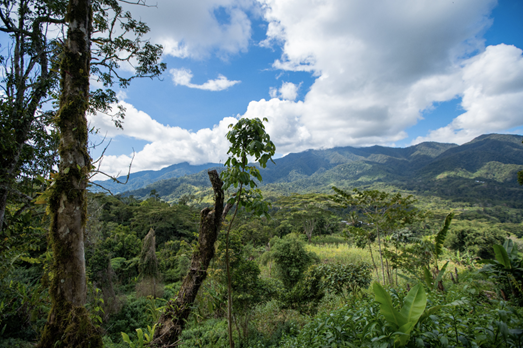From cocoa to carbon credits: Kennemer’s innovative vision for shared success
There is no single secret ingredient to a company’s long-term success, but the ability to see which direction the world is heading in and embrace change is a powerful quality. That takes vision, which is something Kennemer Foods International has plenty of.
Based in the Philippines but trading around the globe, Kennemer is a well-established agribusiness in the cocoa sector. Its focus on training and supporting smallholder farmers, whose produce it has been sourcing and trading since 2010, has helped to build an enterprise both its suppliers and customers can rely on.
This reliability is one reason the Common Fund for Commodities (CFC) began supporting Kennemer in 2017 with a loan of USD 1.4 million. Another is its vision for a better, more sustainable cocoa sector, which is as strong today as when we started working together.
“Sustainability is in our DNA,” explains Jonna Bickel, Vice President of Farmer and Community Programmes. “For us, the fact that consumers are increasingly asking to know if what they are buying is sustainable, both socially and environmentally, doesn't come as a surprise.”
“Cocoa as a product needs healthy and nutritious soil to grow,” continues Jonna. “Taking care of the local environment, planting trees, and adopting conservation measures are all things that we have been doing for a long time.” Climate change is making this more crucial than ever. Unpredictable and extreme weather events, such as tropical storms followed by long periods of dry weather, are becoming more frequent in Mindanao where most of the farmers live. And they are the first to feel its impacts.
“Farmers experience climate change first-hand so they know what it is about,” explains Jonna. “What they don’t know is how to be more resilient to climate change. And that’s where we decided that we could make a difference.” The first step for Kennemer was to turn its existing reforestation project into a programme that would benefit farmers as well as the environment. Its innovative solution was carbon credits.
After two years of preparation, including developing important monitoring skills, Kennemer launched MinTrees, a reforestation programme designed with 2,000 smallholders from rural Philippines. The programme, which is in the final stages of verification under the Verra voluntary carbon standard, will soon enable Kennemer to issue carbon credits.
CFC’s support came at the right time to put the innovation on a firm footing. “What we were missing were the skills to monitor a programme of this kind and to calculate the amount of carbon credits we could issue based on the trees we were planting,” explains Jonna. “It’s a journey that wouldn’t have been possible without the expertise we brought on board. Going through this process with the farmers means that they are now much more aware of the role they can play in fighting climate change.”
Kennemer’s efforts haven’t stopped there. Well aware that reforestation alone wasn’t going to be enough to preserve the local ecosystem, it developed a REDD+ project proposal with 13 communities in Davao Oriental, a rural province southeast of Mindanao. The landscape conservation initiative, the first REDD+ project in the Philippines, is based on four pillars: forest conservation, reforestation, livelihoods and community welfare. Each pillar contributes in different ways to conserving the local ecosystem, both for the communities who live there and the environment.
“On top of our conservation and reforestation activities, we work alongside indigenous and local communities to create community-based agriculture opportunities.” says Jonna. “There is a lot of land in the region, but very few employment opportunities. Too often companies come in and push communities out of their land, depriving them of their main source of livelihood. We tried to create a programme that worked with communities rather than against them.”
The fourth pillar - community welfare - is being delivered through social programmes, such as healthcare initiatives and the development of scholarships in partnership with local universities. The preservation of community spiritual and cultural sites is also a priority. “These activities are driven by the communities, and are based on what their needs are, on what they think contributes to their wellbeing,” adds Jonna.
Kennemer’s ability to embrace change and implement a sustainable vision that benefits the communities it works with, puts it in a strong position to continue its success.. “Cocoa producers are often entrapped in poverty. That’s why, like many impact funds, we were on the lookout for high impact projects in the sector bridging sustainability and environmental safety. We were impressed by Kennemer’s innovation, which is enabling farmers to fight climate change and benefit from the positive environmental impact they are creating. We are particularly happy to partner with a programme that is contributing to the green recovery we badly need following the COVID-19 pandemic recession,” says CFC’s Managing Director Amb. Mohammed Belal.
Kennemer is creating a hybrid model that blends profitability, social responsibility and environmental sustainability. On the ground, it is developing products and programmes that encompass the complete agricultural value chain for smallholders from planting materials, training and agri-technology to carbon credits. We hope more companies, across all commodities and communities, will be inspired to follow in Kennemer’s innovative footsteps.

